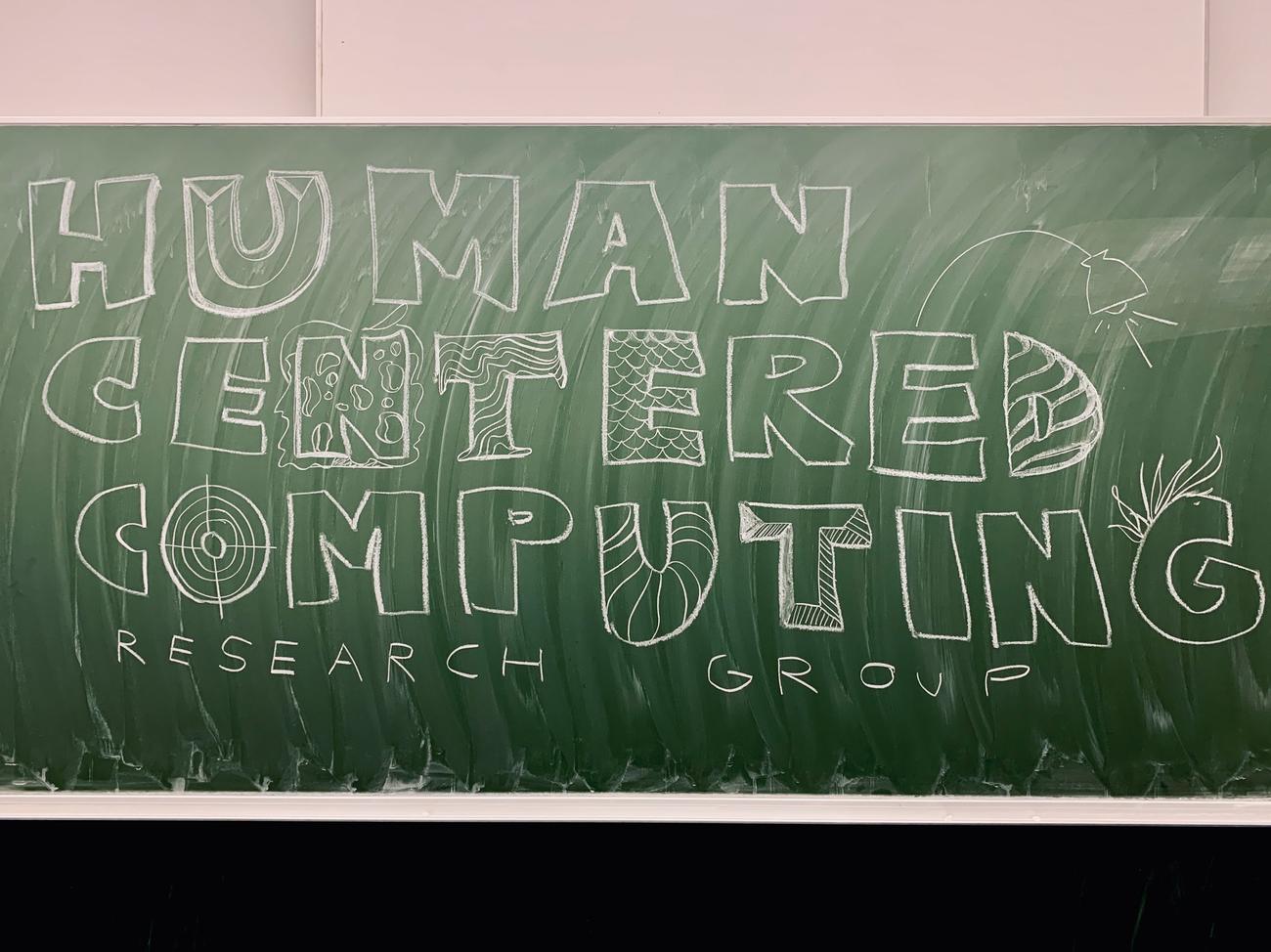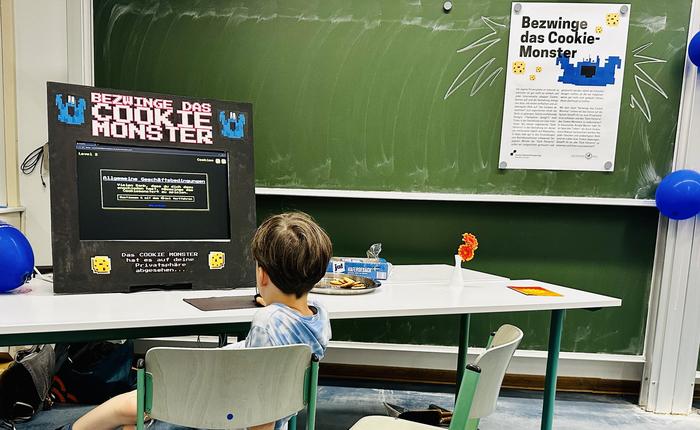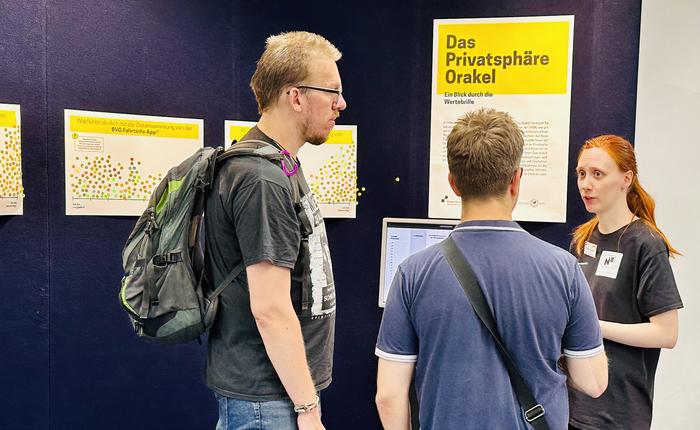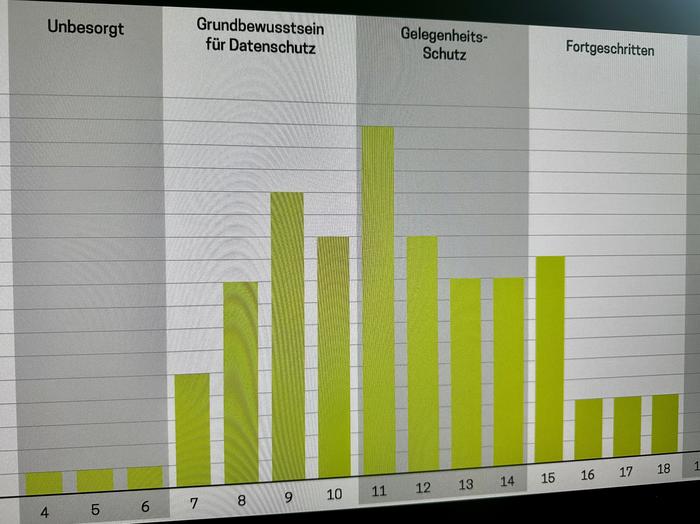LNDW 2024: Engaging in Human-Centered Research through Interactive Exhibits
On July 22, 2024, Berlin institutions welcomed many interested visitors from 5 PM to midnight to the Long Night of the Sciences (LNDW). We, the Human-Centered Computing (HCC) Research Group, participated by presenting our research to the broader public.
In doing so, we showcased five interactive exhibits. In the first exhibit, visitors could challenge themselves with the »Beat the Cookie Monster« arcade game to test their ability to recognize deceptive designs in cookie banners. In the second exhibit, they could engage with the »Privacy Oracle« to reflect on their current level of data protection regarding digital services. In the third exhibit, they could explore three student projects from the »Coding IxD« software project, focusing on datafied life environments represented as tangible objects to support personal well-being.
»Arcade Game: Beat the Cookie Monster«
Cookie banners are ubiquitous, popping up every time we visit a website. Most of the time, we are annoyed and dismiss them quickly. However, we should be aware that these are often intended to deceive us, making us agree unwillingly so website operators can collect our data.
To highlight the overwhelming flood of cookie banners and the nearly endless approaches to deceptive design, we developed an arcade game to test individual knowledge toward consenting online. Like classic 8-bit arcade games, each player has three lives. If players incorrectly agree to one of the many cookie banners in the game, they lose a life—it’s not easy and quite tough. Nevertheless, many LNDW visitors, especially children, took on the challenge, with one visitor even breaking the record of around 13 seconds, while the average game time was about 12 minutes :)
»Privacy Oracle: What is Your Data Protection Level?«
Data protection concerns all of us, whether we use public transport apps or search engines. But do we really know what we’re doing with our data and how consciously or unconsciously we share our data? To explore this, LNDW visitors received a small questionnaire, the "Privacy Oracle," which we used to examine individual data protection levels in four categories: apps, messaging services, cookies, and web browsing. Based on their answers, visitors were anonymously classified into one of the levels: »unconcerned,« »basic awareness,« »occasional protection,« and »advanced.«
Nearly 100 visitors participated. Most of them belonged to the »occasional protection« level; thus, they were mindful of their data protection. Although only some visitors found themselves in the first two levels, there was no cause for concern since we provided helpful tips so they could reach a higher level in the future.
»Coding IxD: Reflecting Datafied Life Environments«
Technologies for data processing, like fitness trackers, are designed to unify our data. So we need to question: How can we examine the experiential differences of individuals and groups, and how can these unique life experiences be acknowledged? Based on data that people provide daily, our students explored the possibilities of data physicalizations in the »Coding IxD« software project.
Coding IxD is an annual teaching course that we, the HCC Research Group, organize in cooperation with the Product Design Department of the School of Art and Design Berlin-Weißensee. In this year’s project, interdisciplinary student teams tackled socially relevant challenges by designing innovative and functional physical objects to enhance individual well-being. The teams investigated new forms of interaction between people, material, and code, intending to enable individuals to critically reflect on their digital behavior and make it tangible. LNDW visitors joyfully engaged in the student projects and reflected on their thoughts in mindful discussions. More about the project can be found here.




